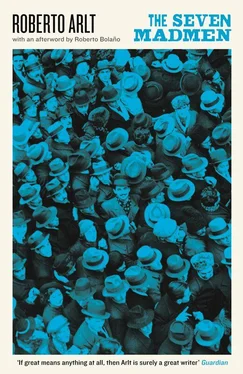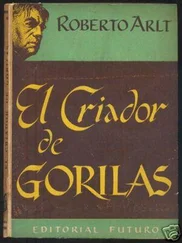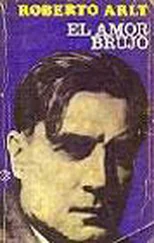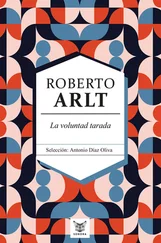He came to a halt to peer at garages as splendid as silver dishes for mass, or the green plumes of cypresses protected behind crenellated walls, or railings thick enough to stop a charging lion. Red gravel curled among ovals of green flowerbeds. Occasionally a governess in a grey cap strolled along a garden path.
And he owed 600 pesos and seven cents!
He stared fascinated at balustrades highlighting black balconies with the round warmth of gold, at windows painted pearl grey or café-au-lait, at panes of glass so thick they must make all passers-by look as if they were walking underwater, at lace curtains so flimsy even their names must be as fascinating as the geography of distant lands. How different love must be in the shade of those tulle curtains, filtering the light and softening every sound …!
But he owed 600 pesos and seven cents. And the pharmacist’s words reverberated in his ears: “You’re right … the world is full of riff-raff … of unhappy wretches … but what’s to be done about it? … How can we present the sacred truths anew to these faithless people …?”
Like one of those plants whose growth is stimulated by electric light, despair sprouted from deep within his chest until it almost choked him.
Standing there, it seemed to Erdosain that each worry was an owl that flitted from one branch of his suffering to the next. He owed 600 pesos and seven cents, and even though he tried to forget it by pinning his hopes on Barsut or the Astrologer, his thoughts drifted off again down a dark street. Strings of lights were hung from the rooftops. Below, a cloud of dust filled the black well of the street. Yet he was walking towards a land of happiness, with the Sugar Company behind him. What had he done with his life? Was this the moment to ask himself the question? How could he walk if his body was a deadweight of seventy kilos? Or was he simply a ghost, recalling events that had happened during its life on earth?
So many things were rushing around deep inside him! What to make of the pharmacist who had married a prostitute? And Barsut, pursued by the one-eyed fish and the spiritualist’s daughter? And Elsa, who would not surrender herself to him, but threatened to throw him out? Was he mad or not?
He asked himself this because there were moments when a strange hope sprang up in him.
He imagined that through a spyhole in the blinds of one of these magnificent palaces, a “melancholy, taciturn millionaire” (those were Erdosain’s exact words) was examining him through a pair of opera glasses.
The strange thing was that when Erdosain thought the “melancholy, taciturn millionaire” might be observing him, he put on a sorrowful, intent expression and stopped looking at the legs of maids passing by, pretending to be caught up in a tremendous inner tussle. He put on this show because he reckoned that if the “melancholy, taciturn millionaire” saw him looking at maids’ legs, he would conclude he was not sufficiently troubled to merit his compassion.
Erdosain even went so far as to believe that having seen the countless years of suffering etched into the taut muscles of his face, the “melancholy, taciturn millionaire” might send for him at any moment.
This obsession grew so strong this particular afternoon that he was even suddenly convinced that a flunkey in a red and yellow striped waistcoat who was staring at him brazenly from a hotel door must be the go-between for the “melancholy, taciturn millionaire”.
Then the butler called him. He followed. He walked across a garden full of spiky cactuses, they went into a large room, where he was left alone for a few minutes. The whole building was in darkness. A single lamp shone in a comer of the room. On the piano bracket, music sheets gave off a scent that showed they were always played by female hands. A woman’s marble bust stood neglected on the sill of a window draped in purple. The cushions on the easy chairs were covered with material like Cubist paintings, and on the desk were burnished bronze ashtrays and a small harlequin statue.
When in his life had Erdosain ever been in a room like the one that now appeared in his imagination? He had no recollection of it. Nevertheless, he saw a huge ebony frame with parallel borders that rose towards a gleaming white ceiling. Its plaster glow lit a marine landscape depicting a dreary wooden bridge beneath whose gigantic arches toiled a mass of indistinct figures, blotched with rusty shadows as they hauled along huge loads, against the background of a bloody, cast-iron sea out of which in the distance loomed a stone wharf cluttered with an assortment of cranes, rails and capstans.
This was the room Elsa had glided through when she was his fiancee. Yes, perhaps, but why recall it now? He was the swindler, the man with the down-at-heel boots, the ragged tie, the greasestained suit, the man who earned his living in the street while his sick wife had to take in laundry. He was all this and nothing more. That was why the “melancholy, taciturn millionaire” had sent for him.
Carried away by his fantasy — which had become almost real thanks to the scenes and images recreated by his great, invisible benefactor — Erdosain could scarcely be bothered to linger over the details of his meeting with the “melancholy, taciturn millionaire” who was offering him the money to put his inventions into practice but, like those readers of thrillers who in their hurry to reach the climax of the plot skip the “boring bits”, he omitted several less interesting episodes his imagination suggested, and portrayed himself as out on the street once more, even though that was where he actually was.
At that, leaving the corner of Charcas and Talcahuano, or Arenales and Rodriguez Pena, he would stride off purposefully agam.
The depths of despair gave way to the wildest hopes.
He would triumph — yes, he would! With the money from the “melancholy, taciturn millionaire” he would set up an electrical laboratory, where he would dedicate himself to the study of betarays, the cordless transmission of energy and electro-magnetic currents. He would grow old, like the absurd character in an English novel, without losing his youth; the only sign would be that his face grew gradually whiter until it took on the pale sheen of marble, while his flashing wizard’s eyes would seduce every young woman on earth.
Night was falling, and Erdosain suddenly remembered that the only one who could save him from his dreadful predicament was the Astrologer. This thought drove everything else from his mind. Perhaps he had money. Erdosain even suspected he might be a bolshevik agent sent to spread communist propaganda in Argentina, because he had an extraordinary plan to set up a revolutionary society. Without hesitating, Erdosain hailed a cab and told the driver to take him to Constitución station. There he bought a ticket to Temperley.
The house the Astrologer lived in stood at the centre of a weekend farm. Its red tiles were visible from far away through the surrounding trees. In the clearings between their weighty trunks, deep in huge waves of grasses and creepers, fat, black-rumped insects spent the entire day buzzing about in a constant shower of weeds and stalks. Not far from the house, the three blades of a wind-pump limped round on its rusty iron support, while further off, the blue and red glass panes of a stable door shone dully. Behind the wind-pump and the house, on the other side of low walls, loomed the dark bottle-green crests of a eucalyptus grove, silhouetted against a navy-blue sky.
Chewing on a honeysuckle, Erdosain strode across to the house. He felt as if he were far from the city, in the middle of the countryside, and the sight of the building came as a relief. Although it had a low outline, it had two floors, with a crumbling balcony around the top floor, and a ridiculous Greek column affair at the entrance, approached by steps flanked by palm trees.
Читать дальше











